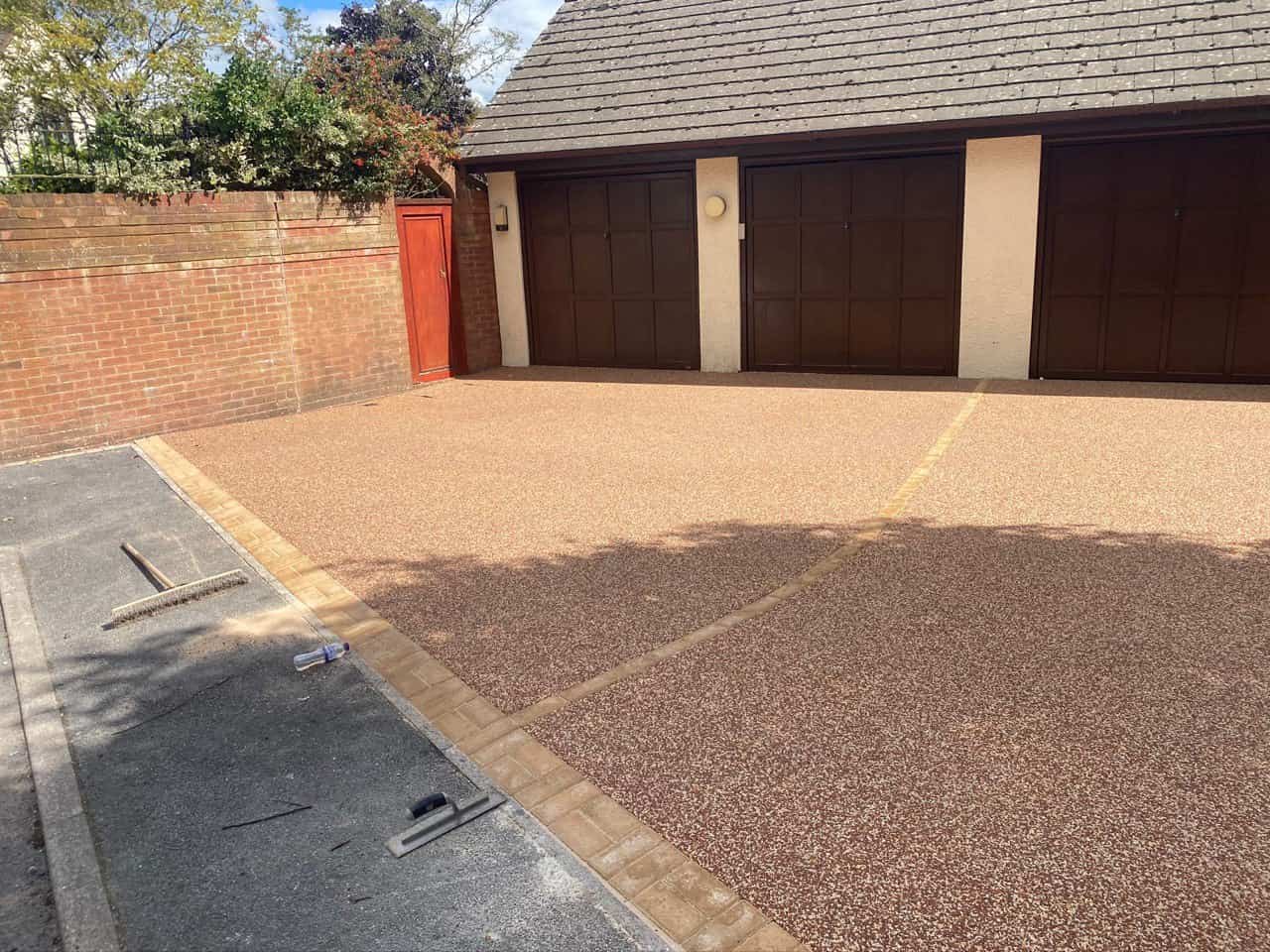
Introduction: When it comes to enhancing your property’s curb appeal and functionality, resin driveways have emerged as a popular choice due to their durability and aesthetic versatility. Among the options available, two prominent choices are resin-bound and resin-bonded driveways. In this informative blog post, presented by Sheffield Resin Driveways, we’ll delve into the differences between resin-bound and resin-bonded driveways, helping you decide which option best suits your needs and preferences.
Resin Bound Driveways
Composition: Resin-bound driveways consist of a blend of aggregates mixed with a resin binder and then troweled onto the surface to create a smooth, seamless finish.
Appearance: Resin-bound driveways offer a visually appealing surface in various colours and aggregate sizes. The smooth finish creates a modern and elegant look.
Permeability: Resin-bound driveways are permeable, allowing water to pass through the surface and promoting efficient drainage. This helps prevent puddles and reduces the risk of flooding.
Durability: Resin-bound driveways are known for their durability and resistance to cracking. The mixture of aggregates and resin creates a strong and stable surface.
Maintenance: Resin-bound driveways require minimal maintenance due to their smooth and seamless surface. Regular cleaning is usually sufficient to keep them looking their best.
Resin Bonded Driveways
Composition: Resin-bonded driveways involve applying a resin layer onto the surface and scattering loose aggregates onto the resin before it sets. The aggregates adhere to the resin, creating a textured finish.
Appearance: Resin-bonded driveways offer a textured surface with a more natural appearance, resembling traditional gravel driveways but with the added benefit of the resin binder holding the aggregates in place.
Permeability: Resin-bonded driveways are not permeable, as the aggregates are laid on top of the resin rather than mixed. This can lead to water runoff and potential drainage issues.
Durability: While resin-bonded driveways are durable, they may not be as resistant to cracking as resin-bound driveways due to the textured surface and potential for loose aggregates.
Maintenance: Resin-bonded driveways require more regular maintenance compared to resin-bound driveways. Loose aggregates can become dislodged over time, necessitating occasional reapplication.
Choosing the Right Option
Considerations: When choosing between resin-bound and resin-bonded driveways, consider factors such as appearance, permeability, durability, maintenance, and budget.
Appearance and Texture: If you prefer a smooth, seamless finish, resin-bound driveways may be more suitable. If you like the texture of loose aggregates, resin-bonded driveways offer a natural look.
Permeability: If efficient drainage is a priority, resin-bound driveways are the better choice due to their permeability.
Durability: Both options are durable, but resin-bound driveways may have an edge in terms of resistance to cracking.
Maintenance: Resin-bound driveways generally require less maintenance due to their seamless surface, while resin-bonded driveways need the occasional reapplication of aggregates.
Budget: Consider your budget when choosing, as the cost can vary depending on your selected option.
Conclusion: Sheffield Resin Driveways understands that choosing between resin-bound and resin-bonded driveways can be a significant decision. Your choice should align with your aesthetic preferences, maintenance expectations, and budget considerations. Both options offer unique benefits, and by understanding their characteristics, you can make an informed decision that results in a driveway that enhances the beauty and functionality of your property for years to come.
Call us on: 0114 6972811
Click here to find out more about Sheffield Resin Driveways
Click here to complete our contact form and see how we can help with your driveway needs.